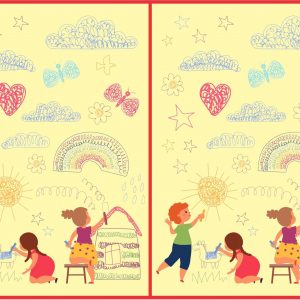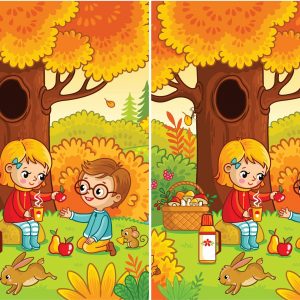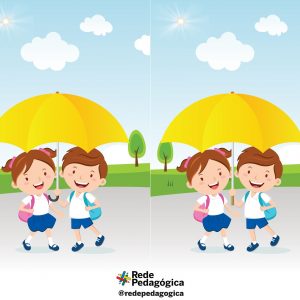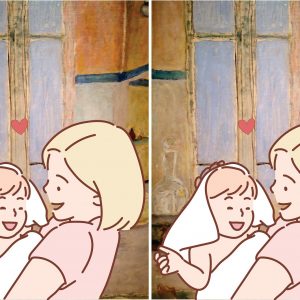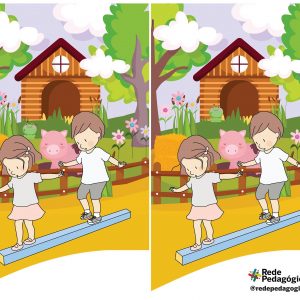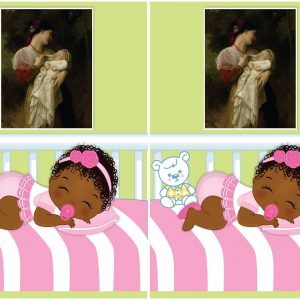The Magic of Childhood: A Fun Moment with a Bunny and a Magic Trick
Childhood is full of wonder, imagination, and fun moments that spark creativity and joy. Whether it’s pretending to be a magician, creating magic tricks, or simply playing with your favorite stuffed animal, these are the times that shape our most treasured memories. In the image we are exploring, we see a little girl excitedly participating in a fun and whimsical moment involving a bunny and a magic trick. The playfulness of the scene, coupled with the charm of the magical bunny, captures the essence of childhood wonder and imagination.
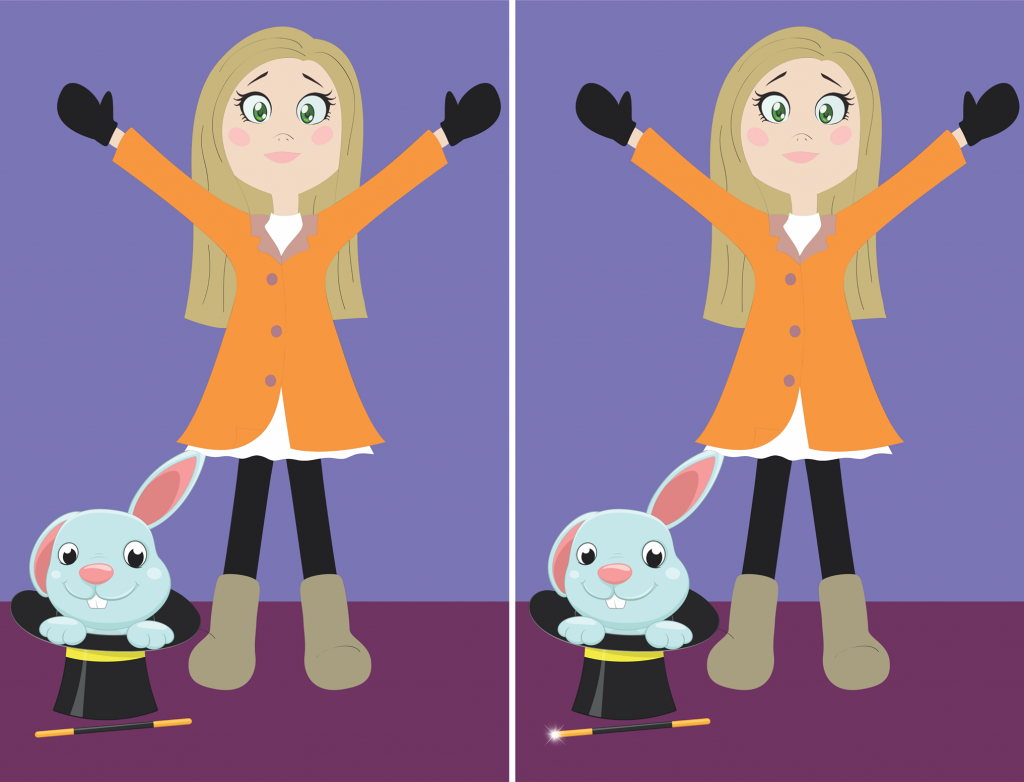
Magical Moments: The Wonder of Childhood Magic
Magic tricks are a part of many children’s fantasies. They not only provide a sense of mystery and awe but also allow kids to tap into their own creativity and imagination. For this young girl, standing in front of her trusty bunny and the magical hat, her world is full of possibilities and enchantment.
The Thrill of Magic in Childhood
From pulling rabbits out of hats to making things disappear, magic is a staple of childhood play. It’s a fantastic way for children to explore and challenge their own limits of creativity, often performing tricks for family and friends. The idea that something impossible can happen before their eyes, like the magical bunny emerging from a hat, creates a sense of excitement and wonder that is unmatched.
Imagination and Creativity at Their Peak
At this age, children are experts in the art of imagination. A cardboard box can become a spaceship, a broomstick might turn into a horse, and a simple bunny can be the star of a magical performance. Magic tricks and the art of illusion captivate children because they blur the lines between reality and imagination, allowing them to create their own reality. The magic trick in this image represents that boundless creativity and excitement.

The Role of Play in Child Development
Play is not only essential for fun, but it also plays a critical role in the development of a child. It fosters cognitive growth, emotional development, and social skills. When children engage in imaginative play, such as pretending to perform magic tricks with their pets, they are learning more than just how to entertain themselves. They are also building essential skills that will help them navigate the world around them.
How Imaginative Play Promotes Cognitive Growth
Imaginative play encourages problem-solving, decision-making, and critical thinking. As children engage with their surroundings in a playful way, they experiment with different scenarios, test out their ideas, and learn from the results. For this young girl, playing with her bunny and performing a magic trick not only brings joy but also stimulates her brain to think creatively, forming connections between concepts like cause and effect.
Emotional Growth Through Play and Interaction
Play helps children express and process their emotions. In this image, the little girl’s happiness is visible in her wide smile and the joy radiating from her interaction with the bunny. Her playful engagement with the bunny brings her happiness, fostering emotional well-being. This emotional release through play is important for children as they learn to manage their feelings in positive ways.

The Joy of Friendship: A Child and Their Animal Companion
In the image, the little girl’s companion is not just a pet but a partner in her magic trick. Animals play an important role in children’s lives, offering companionship, love, and a sense of security. A child’s bond with their pet, whether it’s a bunny, dog, or any other animal, can provide invaluable emotional support and teach valuable lessons about empathy and responsibility.
Animals as Teachers: Building Empathy and Responsibility
Children who grow up with pets often show increased empathy and responsibility. Taking care of a pet involves feeding, grooming, and looking after their needs. This helps children learn how to be nurturing and responsible. As seen in this image, the girl’s interaction with her bunny during her magic trick is not just for fun; it’s a way for her to connect emotionally with her pet, learn empathy, and enjoy a moment of joy together.
The Therapeutic Effects of Pets in Children’s Lives
Pets provide comfort and a sense of security for children, which can be particularly important during stressful or challenging times. The calming presence of a pet helps reduce anxiety and brings comfort to children, allowing them to feel safe and loved. Whether it’s a bunny or a dog, animals are often key to helping children manage their emotions and express themselves more openly.
Fashion Meets Fun: The Magic of Playful Clothing
The girl’s outfit in this image reflects her youthful personality and the fun spirit of childhood. Her bright orange coat and cozy boots are both practical for outdoor adventures and stylish in a playful way. Clothes that match a child’s personality and interests allow them to express themselves creatively, just as magic tricks do.
The Power of Personal Style in Childhood
Clothing is more than just protection from the elements; it’s an extension of who a child is. Whether they choose bright colors, fun patterns, or outfits that make them feel like a superhero, clothing gives children a way to express their individuality and creativity. In this image, the girl’s choice of a bright, playful coat is a reflection of her lively personality and her magical imagination.
Playful Fashion for Adventure and Exploration
Clothing that is comfortable and suitable for adventure encourages children to explore their world. The girl in the image is dressed for action, ready to take on the magic trick with her bunny. Playful and functional clothing allows children to move freely and engage fully in their imaginative adventures, whether they are performing magic tricks or going on an outdoor exploration.

The Importance of Color in Childhood
Color plays an essential role in how children experience the world around them. Bright and vibrant colors can invoke feelings of joy and excitement, while softer tones may provide a sense of calm and relaxation. The color scheme in this image — the purple background, the vibrant orange of the girl’s coat, and the playful hues of the bunny — create an overall cheerful and lively atmosphere.
Color Psychology: The Impact of Colors on Mood
Colors have psychological effects on emotions and behaviors. For example, the orange coat represents energy, enthusiasm, and warmth, all of which are qualities associated with a playful and happy child. The calming purple background encourages a sense of tranquility, providing the perfect balance for the magical moment unfolding. This use of color not only enhances the visual appeal of the image but also contributes to the overall positive mood.
Bright Colors and Their Role in Child Development
Bright colors stimulate children’s senses and encourage exploration. Colors like orange, yellow, and green are often associated with creativity and energy, making them ideal for environments where children are learning, playing, and imagining. In this image, the color choices are not just for aesthetic appeal but are also conducive to fostering an imaginative and playful environment.
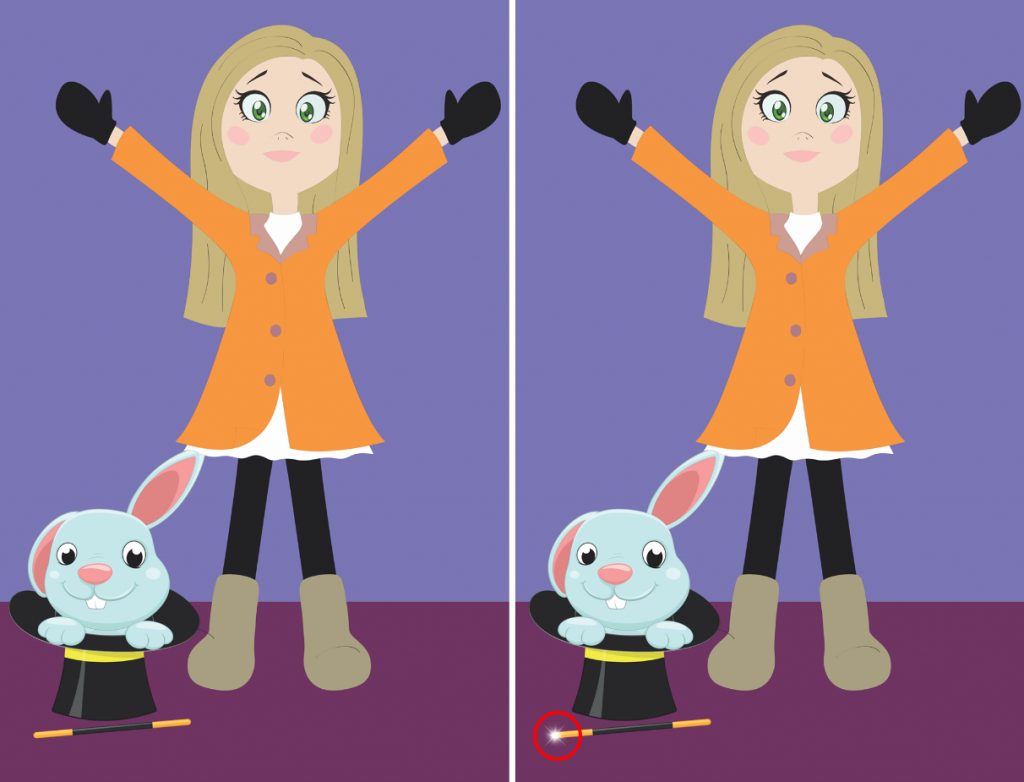
Conclusion: The Magic of Play and Friendship
The image of the little girl and her bunny showcases the magic of childhood — a time filled with imagination, creativity, and play. It emphasizes the importance of fostering these qualities in children as they explore the world and build emotional connections with those around them. Whether it’s through a magic trick, the comfort of a pet, or the joy of a favorite outfit, these moments of fun and exploration help children grow, learn, and thrive.
Ultimately, this image reminds us of the wonder that lies in childhood, a time when the possibilities are endless, and every day is a new adventure. The girl, her bunny, and her magical moment offer a glimpse into a world where imagination knows no bounds, and the simplest things can bring the greatest joy.
